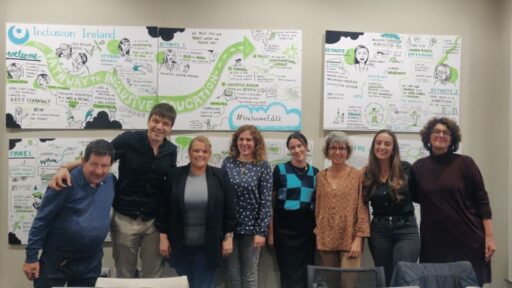
capito goes international: Our project meeting in Ireland
We traveled to Ireland to meet with our project partners for our international project “CCUV”. Learn more about it in this blog post!
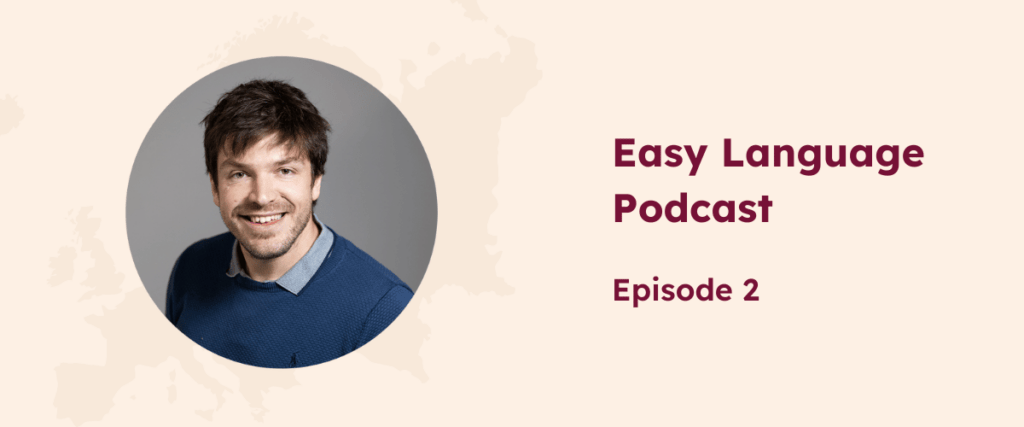
Easy Language Podcast Episode 2:
In our 2nd episode, we talk with Guillaume Jacquinot, Policy Coordinator at Inclusion Ireland, about the state of easy-to-understand language in Ireland.
Guillaume talks to us about Inclusion Ireland, his work and his personal story to work for a more inclusive world.
He shares his thoughts on how Irish society is becoming more inclusive and that the industry sector has yet to fully realize the potential of accessible language.
If you have any questions to our project or just want to get in touch with us, click here.
In the podcast episode, you’ll learn …
Guillaume: My name is Guillaume Jacquinot and I’m working for Inclusion Ireland, one of the partners of the European project.
Anja: Great. What do you do?
Guillaume: I am a policy coordinator at Inclusion Ireland, so I’m coordinating all the submissions. Policy submissions to be sent to the governments, different departments on different topics like education and employment.
And as part of this job, it’s very important to make sure that we consult with people with intellectual disabilities, they’re at the heart of what we’re doing. And of course, easy-to-read and easy-to-understand is used to make sure they can fully participate in what we do.
Anja: Okay, so this is what Inclusion Ireland does entirely?
Guillaume: So Inclusion Ireland is a national advocacy based organization. So one of our main roles is to push to make a change with the laws, to make sure that people with an intellectual disability in Ireland are fully included in the community: They can live in the community, they can work with other people in the community, go to the same schools, access the same services, so be fully recognised as equal citizens
Anja: Cool. How did you get to this job?
Guillaume: Long story short, I was working with Inclusion Europe before that for 3 years. Inclusion Ireland is one of the members of Inclusion Europe. Inclusion Europe is the European Network of organisations representing people with intellectual disabilities.
So I was doing the same thing, working on policies, but at European and international level. I’m living now in Ireland, so I was looking for a job in Ireland and I remembered it of course, Inclusion Ireland, and I applied and got a job.
Anja: I see. Very nice. So why are you part of this project?
Guillaume: Because it’s the first Erasmus+ project Inclusion Ireland is a part of. So it’s a new thing for the organisation. And I guess part of the things I wanted to bring to Inclusion Ireland was more participation into European and international affairs. So more things enabling self-advocates in Ireland.
When I say self-advocates, it’s people with intellectual disabilities advocating for themselves. And to enable self-advocates in Ireland to take part in European and international things, too.
Like speak at, for instance, the UN Committee on the Rights of People with Disabilities, events on education, employment. So I guess, us taking part in this project also transfers to learn from other countries, to learn what atempo and more precisely what capito is doing, to see how the process of producing easy-to-read is done in other countries.
What we can get, what we could get from it from an Irish perspective, and maybe what we could share as well from what we’re doing with other countries. So I guess it’s beneficial for both parts.
Anja: Yeah, I agree. I think one question that connects to that is the question of what is the status of Easy Language in Ireland.
Guillaume: I think that there’s a very strong civil society movement in Ireland and I would say easy-to-read and easy-to-understand is definitely implemented, understood and recognized.
As I told you, I’m involved in a lot of policy submissions and from what I can see, more and more departments are coming to us to ask: “Here is the easy-to-read document we’ve done. Can you proofread? Is it okay? Do you have enough time to consult with people with an intellectual disability?”
So it wasn’t like this 10 years ago. So there’s really a move towards making sure that everyone can take part in a consultation. And even so, accessible information and communications are becoming more of a thing now.
Anja: Do you know if there are any laws that already require companies or public speakers to provide information in accessible language?
Guillaume: We would have something called a Public Sector Duty in Ireland that obliges public services not to discriminate against minorities. And as a part of this, making sure that information is easy-to-read, easy-to-understand.
That people who receive, like public users with an intellectual disabilities, are able to provide information in the form that they can understand. So, yes, there’s a framework and we’re here to make sure it’s respected.
Anja: Okay, great. Do you also think that the private sector, like industry, etc., already realized that there’s a big potential in accessible language?
Guillaume: I think more and more, but definitely it’s more of a public service thing at the moment because it’s in the interest of the Irish government and any government overall to make sure that one consultation reached every part of the population.
So there’s a kind of public interest in making sure that the information you provide is accessible and understood by all. For private companies, of course, it’s an economic interest and you want to have a wider range of customers. So I definitely think that big companies, Microsoft, Apple started to do more and more digital accessibility.
But apart from the big companies, who started to look at it, not too sure that many started because when we talk about accessibility, it’s mainly physical accessibility that is understood. And accessible information, there is still progress to make sure it is fully recognized also by the private sector.
That when we talk about accessibility, it’s not only building a ramp, but it’s also to have accessible signs, so people can know where it is, accessible tools, accessible information and communication. So we still have a way to go for sure with the private companies.
Anja: I agree. It’s very similar in Austria, I think.
Guillaume: Oh yeah, it’s a human thing. Like accessibility is physical at the moment.
Anja: Absolutely. Yes. If there’s anything you would like to come out of this project, could you name me one thing you’d like it to be?
Guillaume: There would be quite a few things. But I’d say from an organisational point of view, Inclusion Ireland, we want to develop our own service: easy-to-read.
And I guess working here in this project with other organizations such as capito and Red Carpet and com’access, it’s a way for us to advance on this project of developing an easy-to-read service and to create a process, a structure, to have an easy-to-read service within Inclusion Ireland and to make sure we can make it more of a thing and that it enables us to hire employees with an intellectual disability. So that’s really one thing that we would expect out of this project to advance on this project of ours.
Anja: Great. Thank you. That’s all. And I hope you have a great project. Thank you.
Guillaume: Thanks for having me.
Sounds exciting? Then sign up for our newsletter and follow us on Facebook, LinkedIn and Twitter! That way you’ll always be up to date. Feel free to leave us a comment if you have any questions or comments about the project.
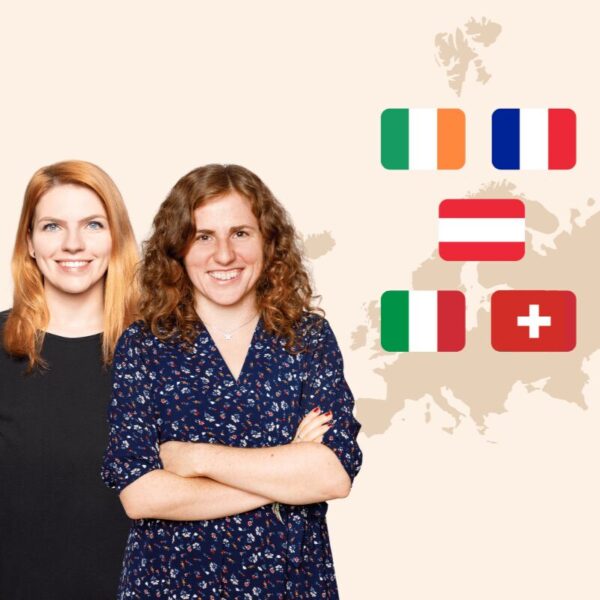
Are there many texts in Easy Language in English? How accessible are Italian authorities? And how do you write in a gender-sensitive way in French?
We asked these questions to experts from all over Europe.
Together we talk about easy-to-understand language in the respective national languages.
Listen now on Anchor, Spotify or Apple Podcasts:

The European Commission support for the production of this publication does not constitute an endorsement of the contents which reflects the views only of the authors, and the Commission cannot be held responsible for any use which may be made of the information contained therein.

We traveled to Ireland to meet with our project partners for our international project “CCUV”. Learn more about it in this blog post!
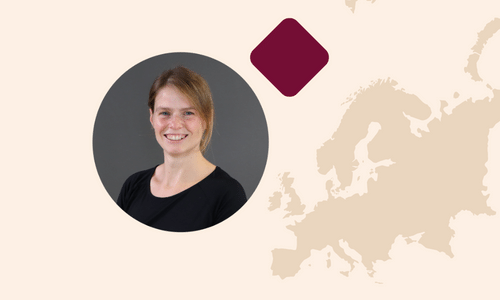
In this episode, we talk with lecturer and translator Marlene Dax about Easy Language in science communication.
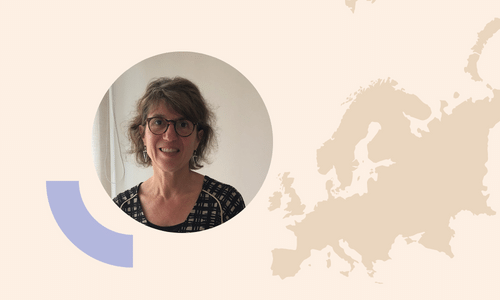
In this episode, we talk with cof-ounder of Com’access Karine Bardary about Easy Language in France.